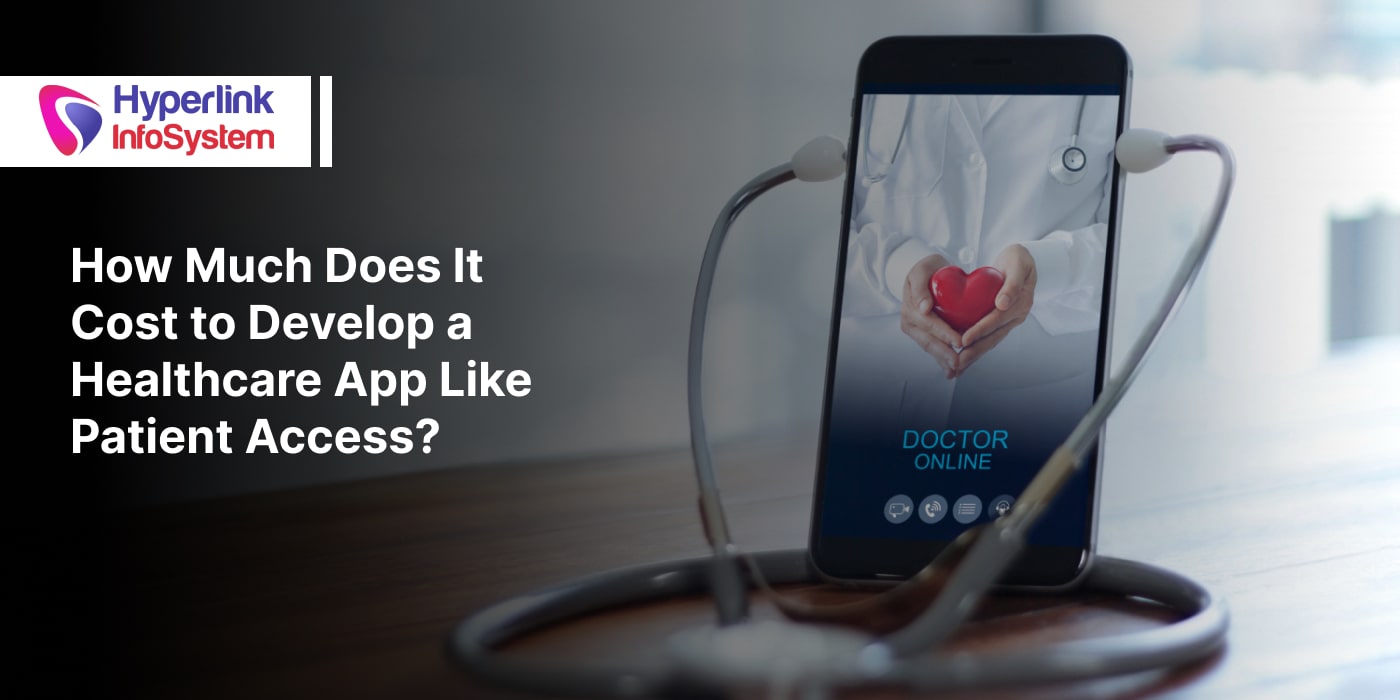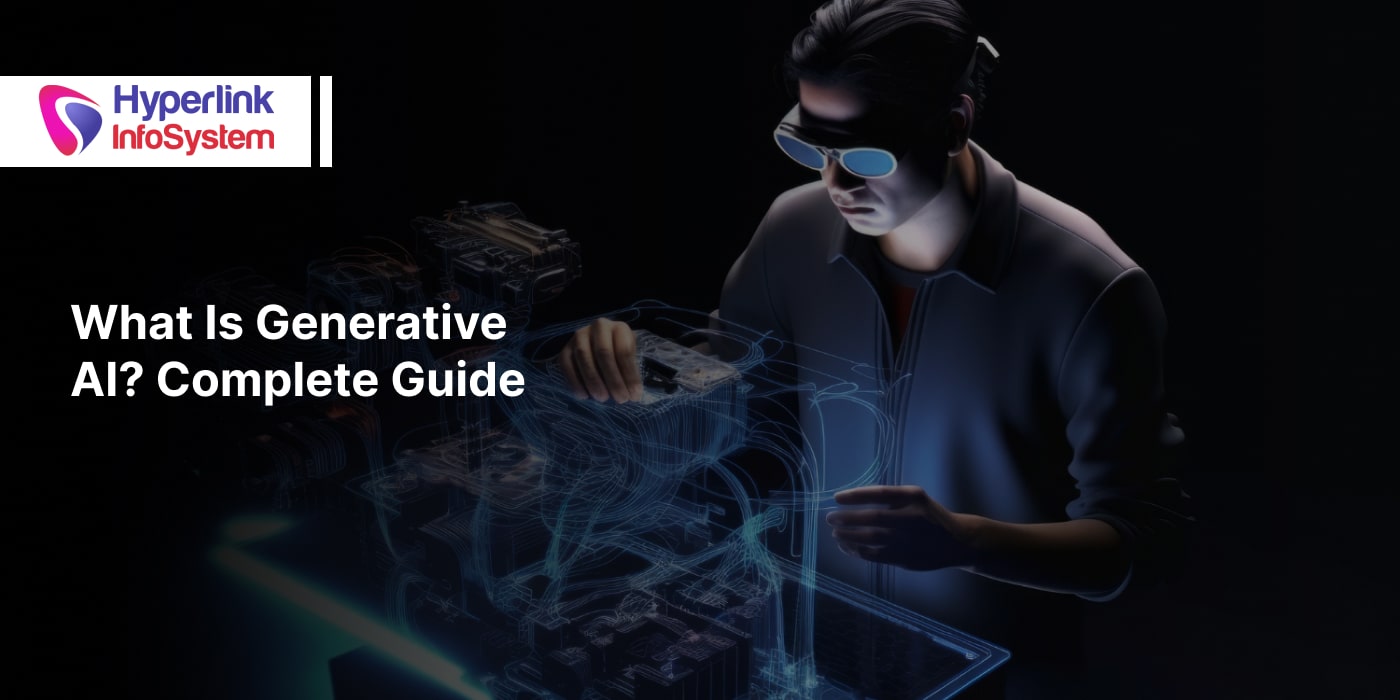Artificial Intelligence In Healthcare
May 2024

AI offers immaculate data-processing and predictive capabilities that empower healthcare professionals to utilize their resources smartly and assume a proactive role in different areas of the sector. Employing these technologies in the holistic parts of the medical associations like staff, patient management, treatment, and diagnosis can help doctors make quicker decisions. It also helps health administrators to quickly locate all electronic health records within seconds so as to avoid any delays in patient treatments.
What Is AI in Healthcare?
The healthcare industry is in an ongoing transformative era while being continually driven by Artificial Intelligence (AI). Artificial intelligence in the healthcare industry holds immense potential to revolutionize many areas, such as medicine delivery, enhance patient outcomes, and improve medical research. AI in healthcare consists of natural language processing, machine learning, deep learning, and many other AI technologies designed to make lives and experiences better for patients as well as healthcare professionals.
Types of AI in Healthcare
AI in healthcare is a comprehensive collection of many emerging and advanced technologies, each providing specific results. Even though the healthcare industry is thoroughly enjoying the fruits of AI technologies, the tasks and processes they endow change from time to time. Let us check out some of the prominent AI technologies in healthcare:
1) RPA
RPA, or Robotic Process Automation utilizes the power of automation technologies to understand, imitate, and implement rules-based industry processes. In comparison to other examples of artificial intelligence in healthcare, this one is not that expensive, easier to set up, and offers actionable transparency throughout. When it comes to healthcare, RPA helps automate repeat tasks like data entry, upgrading patient records, and generating bills or invoices.
2) Natural Language Processing
NLP, or Natural language processing, encompasses applications like speech recognition, text analysis, text-to-speech, and others. A standard usefulness of NLP in healthcare is its implication in creating and compartmentalizing clinical documentation along with publicized research. NLP has the potential to analyze clinical notes on patients, providing immaculate and precise insights into enhancing processes, comprehending quality, and providing more satisfactory patient care.
3) Rule-Based Expert System
The rule-based expert system is one of the easiest forms of artificial intelligence in the healthcare industry. It employs prescribed knowledge-based rules for solving errors and issues. This expert system aims to extract information from a human expert and translate it into numerous hardcoded rules for applying it into the input data. In the health sector, this solution is widely used for clinical decision-support purposes. Rule-based systems perform sufficiently up to a point and are easy to understand for the novice AI user. But as soon as the rules start to increase, the conflict begins within each other, and the breakdown starts to occur. However, in 2024, most of these rule-based solutions will be replaced by more solutions that are based on ML algorithms and internal data.
4) Machine Learning
Machine Learning (ML) is the most popular AI technology leveraged by the healthcare business. Machine learning stimulates mainstream human learning and enhances its accuracy over time. The most spectacular use of machine learning in healthcare is precision medicine. It helps in forecasting which therapy and treatment solutions are optimal for patients purely based on different patient characteristics and diagnoses. Most precision medicine applications depend on supervised learning, that uses a training dataset fulfilled with predictable outcomes. The neural network models aka deep learning are the most advanced ones of all the types in machine learning. It predicts outcomes utilizing numerous variables and features. One standard usage of deep learning is detecting possibly malignant tumors in radiological imaging.
Also Read | Unlock the Power of AI in Social Media
Benefits of Artificial Intelligence in Healthcare
The use of artificial intelligence in healthcare is a game-changer for the health industry. It has completely changed the way doctor appointment booking app development works and medicine delivery apps function. By utilizing the potential of AI, healthcare providers are now able to streamline processes, improve patient care, and completely transform operational efficiency. Let us explore the tremendous benefits of artificial intelligence in the healthcare sector:
1) Prior Detection for Early Diagnosis
For determining patient outcomes in the world of the healthcare system, critical evaluation and analysis are vital first. AI possesses the ability to process huge amounts of data at amazing speeds and has drastically improved the precision and swiftness of everyday diagnosis. AI algorithms can comfortably examine medical imaging like MRIs, X-rays, and more with accurate precision. This leads to quicker and more trustworthy diagnoses, while also leaving time for proper interventions and treatments. AI also has the capability to recognize any unusual patterns or anomalies leading to premature disease detection.
2) Customized Treatment Plans
All patients are different, and so is their healthcare. AI has driven the culture of customized medication to the forefront of healthcare. By evaluating any patient's medical history, current health statistics, and genetics, AI can help build individualized treatment programs that are suited to the patient's needs. These individualized treatment plans analyze the patient's hereditary predispositions, previous medical treatments, and other variables that influence their response to therapy. This helps in increasing the efficacy of medicines but also reduces the possibility of any side effects.
3) Predictive Analytics for Disease Prevention
AI ensures that the prevention of diseases becomes a top priority and is more cost-efficient than treatment. Artificial intelligence used in healthcare is incredibly powerful in predicting disease outbreaks and recognizing any possible health risks beforehand. By calculating huge datasets via different sources, like environmental data, and health records, AI has the potential to detect trends and patterns that can signal an impending health issue. In addition to contagious diseases, AI is instrumental in identifying upcoming chronic illnesses in patients. By predefining risk factors and providing premature alerts, AI encourages healthcare providers to enforce preventive measures, finally relieving the load on healthcare systems.
4) Enhancing Medical Education
Learning and awareness are fundamental components when it comes to healthcare, and AI in healthcare is enhancing this in a multitude of ways. Medical students and professionals can leverage the latest simulations and other AI-powered tools to better educate themselves on medical norms and processes. Other applications powered by AI, like virtual reality (VR) and augmented reality (AR), offer amazing immersive experiences that help students practice techniques or understand how to diagnose patients digitally. Artificial intelligence used in healthcare provides a safe and risk-free environment for understanding and rehearsing medical skills efficiently. Furthermore, AI-powered chatbots and virtual assistants are immaculate resources for students and medical professionals looking for specific queries and information. This quick, prompt-based access to knowledge encourages continuous learning and confirms that healthcare personnel are aware of the latest trends in their sector. By improving medical education, AI contributes to the constant advancement of healthcare grade and patient security.
5) Efficient Medical Imaging Analysis
In the domain of medical imaging, the benefits of artificial intelligence in healthcare have emerged as a vital tool for healthcare workers. Many AI algorithms can study complex medical images like CT scans, MRIs, and X-rays much more quickly and precisely. This indicates that AI can empower pathologists and radiologists can assess these images swiftly and accurately. It's vital to note that AI is not after replacing these human skills; rather, it enhances it. Radiologists can employ AI to catch potential abnormalities or anomalies in medical images, which can thereafter be examined by medical professionals. This collaborative process accelerates the diagnostic process, reduces the likelihood of any negligence, and ensures that patients receive immediate care. Furthermore, AI can assist in discovering patterns and tendencies in medical imaging data, which further contributes to recent medical analysis, and, in general, enhances treatment strategies.
Also Read | How AI Is Transforming Businesses?
6) Drug Discovery and Development
The whole process of discovering and developing drugs is extremely expensive and time-consuming. The use of artificial intelligence in healthcare is transforming the atmosphere by accelerating the recognition of potential medication candidates. AI algorithms have the potential to browse huge amounts of molecular data, calculate the efficacy of drugs, and determine any potential negative effects. This sped-up drug discovery process offers far-reaching outcomes. It holds the potential to usher in the discovery of ingenious treatments for a variety of ailments, including irregular conditions that have garnered little to no attention from researchers. Furthermore, AI-driven pharmaceutical development can lower the general cost of obtaining new medications to market. This benefits both patients, who obtain access to modern medicines, and pharma companies to help them launch new products to market more quickly. The intersection of AI and drug discovery proffers tremendous promise for the future of healthcare, in addition to revolutionizing treatment opportunities for countless patients.
7) Promoting Medical Research
Proper medical research is vital for the advancement of the medicine industry, and top AI development companies are utilizing artificial intelligence in healthcare apps for the same. AI is playing a crucial part in expediting findings that can investigate enormous databases, such as genomic data, clinic records, and scientific publications, to disclose trends, patterns, and potential advances. Another interesting use is to find prospective medication candidates for different kinds of ailments. AI algorithms can scrutinize the molecular arrangement of drugs and evaluate their effectiveness as prospective cures. This significantly revs the drug discovery approach, leading to quicker access to unexplored medicines. Moreover, AI can also assist medical researchers in identifying patient cohorts for clinical trials, which makes the whole recruiting process streamlined. This is primarily conducted for rare or unknown disease findings, where encountering suitable participants is daunting. The collaborative synergy between AI and medical research provides a promising future for unlocking innovative treatments, understanding illnesses on a deeper level, and eventually enhancing healthcare outcomes for patients globally.
8) Simplified Managerial Tasks
Administrative burdens in healthcare are not just complicated but challenging in the process. Collecting patient information, fixing appointment slots, processing insurance claims, and invoicing are just a few of the daily mundane tasks that not only take time but also require multiple human resources. This is when artificial intelligence in healthcare steps into the picture. AI automation streamlines your daily online processes, thereby lowering administrative personnel workload and mistakes. For example, virtual assistants and chatbots have the capability to handle appointment scheduling and FAQs, enabling medical staff to focus on other emergencies. AI-powered software helps process insurance claims quicker and more accurately, lowering chances of delays and disputes. This not only saves time, but also guarantees that your healthcare practitioners are properly compensated for all their services. By automating all your admin tasks, AI enables healthcare workers to prioritize patient care, enhancing overall efficiency and the patient journey.
9) Remote Diagnosis and Telehealth
In an age where remote treatment and diagnosis are increasing in popularity, AI is significant in offering remote monitoring and telehealth services. IoT gadgets and connected sensors enable AI to accumulate and analyze live patient data, from the comfort of their own homes. Remote monitoring helps healthcare providers keep a close eye on patients dealing with any kind of chronic illness, guaranteeing that any possible issues are determined early. On the other hand, telehealth employs AI-powered communication platforms that help patients consult with healthcare providers digitally across the globe. It eliminates the requirement for scheduling appointments and in-person visits, which is vital during large epidemics and pandemics. The combined usage of remote monitoring and telehealth enhances patient care, promotes early detection, and assures patients receive prompt medical attention even from faraway locations.
10) Cutting Expenses and Resource Utilization
Healthcare expenses are a global concern, and artificial intelligence in the healthcare industry has proven to be an effective tool for reducing these expenditures while also streamlining resource allocation. AI helps automate administrative processes, avoiding additional labor costs. Furthermore, AI can help investigate patient data to recognize high-risk people who could require intensive and expensive treatments. By identifying such patients early on, healthcare practitioners can start their preventative treatments, potentially lowering the requirement for fundamentally expensive future treatments. AI in healthcare can be achieved by hiring on-demand developers who can design features to optimize resource allocation inside healthcare institutions. This will be a beneficial enhancement to the broader healthcare ecosystem.
11) Enhanced Patient Engagement
Patient participation is again an important parameter in the healthcare sector that determines treatment adherence and its across-the-board success. AI-powered healthcare apps and platforms such as doctor appointment booking app development and medicine delivery apps have actively helped people enhance their healthcare journey. These applications enable patients to instantly access their medical records via their smartphones, browsers, and other devices. Patients have the ability to create objectives, track progress, refill prescriptions, and set appointment reminders using simple interfaces. Similarly, AI can dissect patient data to supply personalized health guidance and facilitate healthy demeanors. It also helps in acquiring information about potential risks and best practices in the industry for preventive measures, empowering patients to make proactive efforts for more satisfactory results.
Also Read | How AI Is Transforming the Agriculture Industry?
Conclusion
The future of healthcare is absolutely intertwined with AI. As technology advances, we can expect amazing solutions in the doctor appointment booking app development and medicine delivery app categories. More and more top mobile app development companies are working on providing on-demand developers for truly realizing the top 10 benefits of artificial intelligence in healthcare. Innovative applications of AI in the fields of diagnosis, therapy, and patient care are the future of the healthcare industry. Many companies are on the lookout to hire dedicated developers remotely to develop programs like virtual nurses, AI-powered prostheses, and other scanning machines. However, it's important to confirm that AI is designed and operated responsibly, by not losing touch with patient well-being, ethical contemplations, and holistic access to transformative technology.
Frequently Asked Questions
In 2024, AI in healthcare will be primarily used to enhance speed and accuracy in healthcare. Some contemporary applications of AI in this domain include:
- Diagnosing Patients: AI algorithms scrutinize medical imaging data such as X-rays, MRIs, and CT scans to enable healthcare practitioners to make correct and punctual diagnoses.
AI is making waves across different healthcare aspects such as:
- Enhanced efficiency and lowered costs
- Possible robotic surgeries
- Earlier disease detection and diagnosis
- Treatment & Personalized Medicine
Some of the primary examples of artificial intelligence in healthcare are:
- AI-powered chatbots for 24/7 symptom screening, and mental health support.
- AI algorithms for complicated surgery assistance, and autonomously enacting sensitive maneuvers.
- Machine learning for vast dataset analysis, drug findings, and tailored treatment plans.
- AI-powered wearables and sensors for remote patient monitoring and improving chronic condition management.
Latest Blogs

Is BlockChain Technology Worth The H ...
Unfolds The Revolutionary & Versatility Of Blockchain Technology ...


IoT Technology - A Future In Making ...
Everything You Need To Know About IoT Technology ...

Feel Free to Contact Us!
We would be happy to hear from you, please fill in the form below or mail us your requirements on info@hyperlinkinfosystem.com
Hyperlink InfoSystem Bring Transformation For Global Businesses
Starting from listening to your business problems to delivering accurate solutions; we make sure to follow industry-specific standards and combine them with our technical knowledge, development expertise, and extensive research.
4500+
Apps Developed
1200+
Developers
2200+
Websites Designed
140+
Games Developed
120+
AI & IoT Solutions
2700+
Happy Clients
120+
Salesforce Solutions

40+
Data Science


















